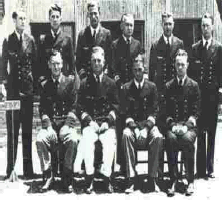

WHO WAS SHE? In 1941, HMAS Sydney (II) was the pride of the Royal Australian Navy fleet.
RIGHT: HMAS Sydney arrives at Circular Quay, Sydney, during February 1941. After engagements in the Mediterranean during 1940 when she famously sank the Italian battle cruiser Bartolomeo Colleoni, Sydney returned to Australian waters and in late 1941 was carrying out troop ship escort duties between Australia and SE Asia. above image of HMAS Sydney (II) available in large format, click image
ABOVE: Photograph of the HMAS Sydney (II) Crew from the National Archives
STATISTICS
Further reading:
WHAT HAPPENED? On the 19th of November 1941, after handing over escort of the troop ship Zealandia in the Sunda Strait, Sydney was en route back to port in Fremantle. In open ocean SW of Carnarvon, Sydney spotted an unidentified merchant vessel and closed requesting identification. The HSK Kormoran, a disguised German raider, eventually opened fire and a battle ensued from which neither ship survived. LEFT: Photograph of Kormoran issued to British warships, Oct 1941. THE CONTROVERSY
Many factors have contributed to this controversy - the first is that the battle took place in a remote, deep-water location with no allied witnesses. RIGHT: Forward gun deck of the Sydney. Because of Sydney’s apparent superior firepower, there was disbelief that Kormoran could have sunk her. In some quarters this led to suspicion of foul play. The Royal Australian Navy said nothing initially. Government restrained the press, trying to shield the public from a collective blow to morale
The Royal Australian Navy then sent out non-specific bereavement letters. For decades after the war, relevant documents were not released.
The Sydney tragedy precipitated Australia’s largest loss of life in a naval battle. LEFT: Captain Theodor Detmers (2nd from right sitting) with officers of Kormoran in Australian POW camp.
THE FINDING OF THE HMAS SYDNEY (II) The wreck of the HMAS Sydney (II) was found by the Finding Sydney Foundation on 16th March 2008 at 26° 14’ 37” S 111° 13’ 03” E, approximately 207km (128 miles) from the west coast (Steep Point) of Western Australia at a depth of approximately 2,468 metres. The wreck of the HSK Kormoran was found by the Finding Sydney Foundation on 12th March 2008 at 26° 05' 49.4" S 111° 04' 27.5" E, approximately 207km (128 miles) from the west coast (Steep Point) of Western Australia, at a depth of approximately 2,560 metres. Further reading: HMAS Sydney (II) Is Found Books (unofficial): |
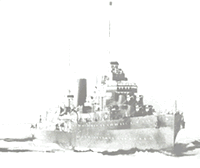


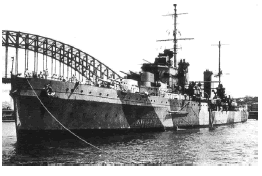 She was a 6,830 ton modified Leander class cruiser with an illustrious battle record.
She was a 6,830 ton modified Leander class cruiser with an illustrious battle record.
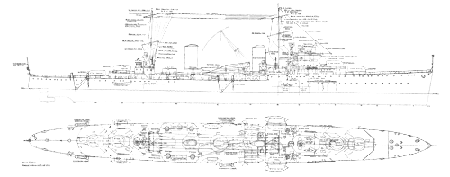
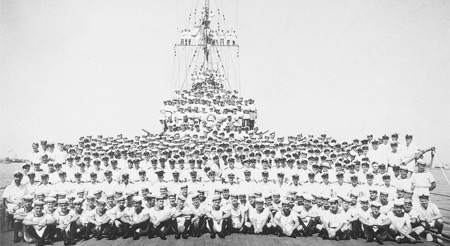
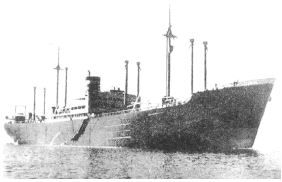
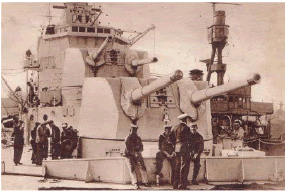 For over 66 years, bitter controversy has raged over how and why Sydney sunk without a trace.
For over 66 years, bitter controversy has raged over how and why Sydney sunk without a trace. 